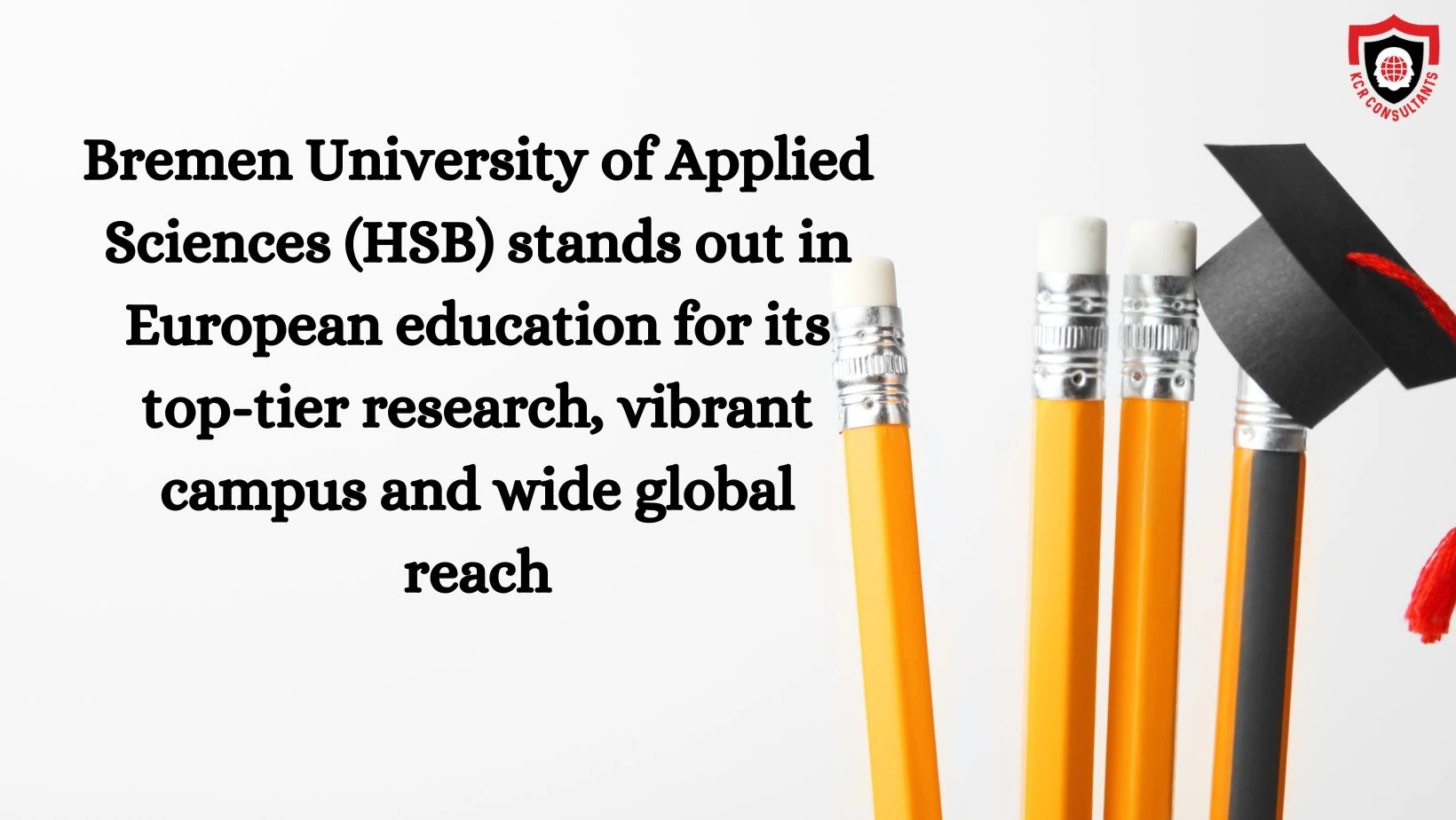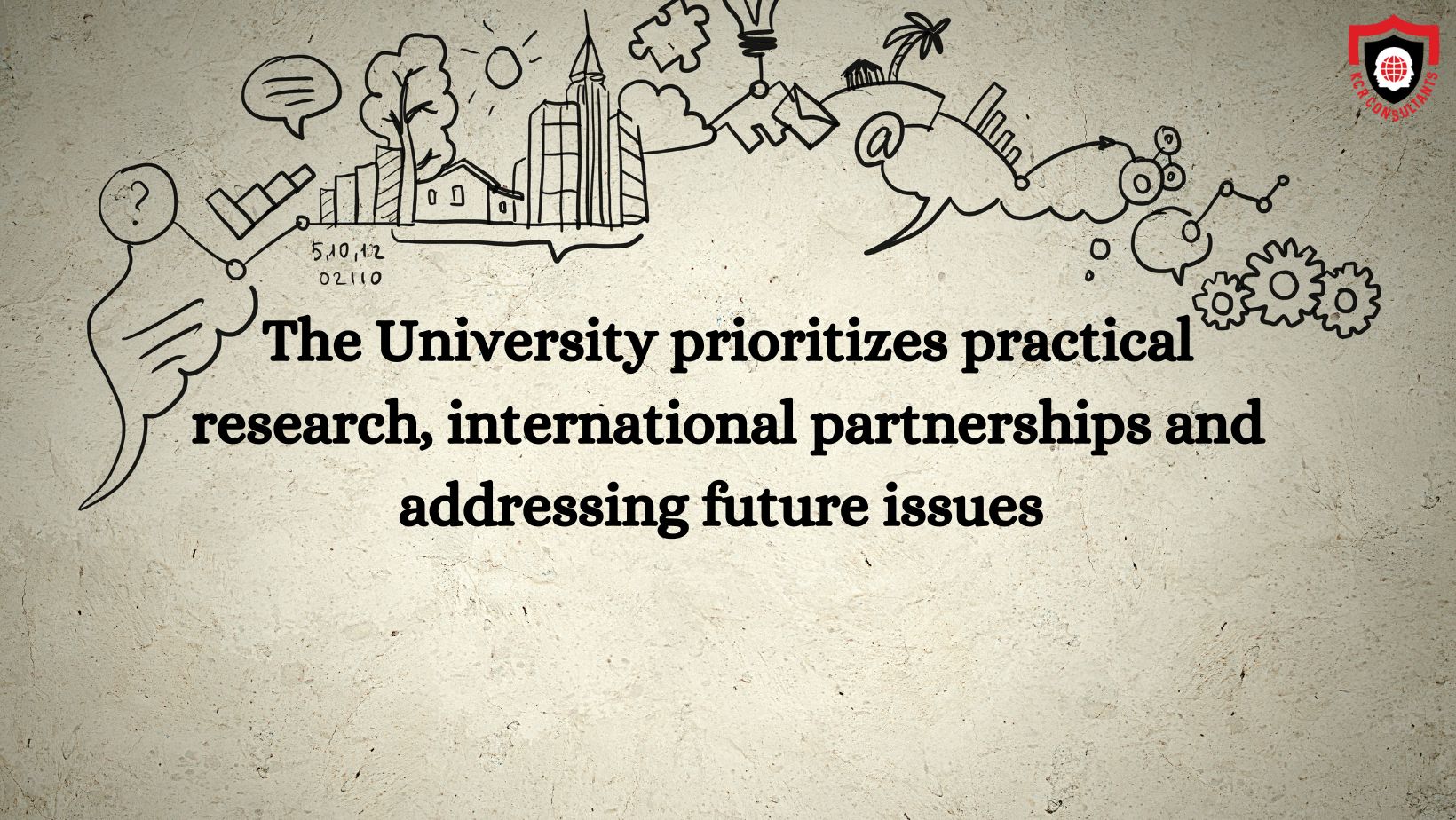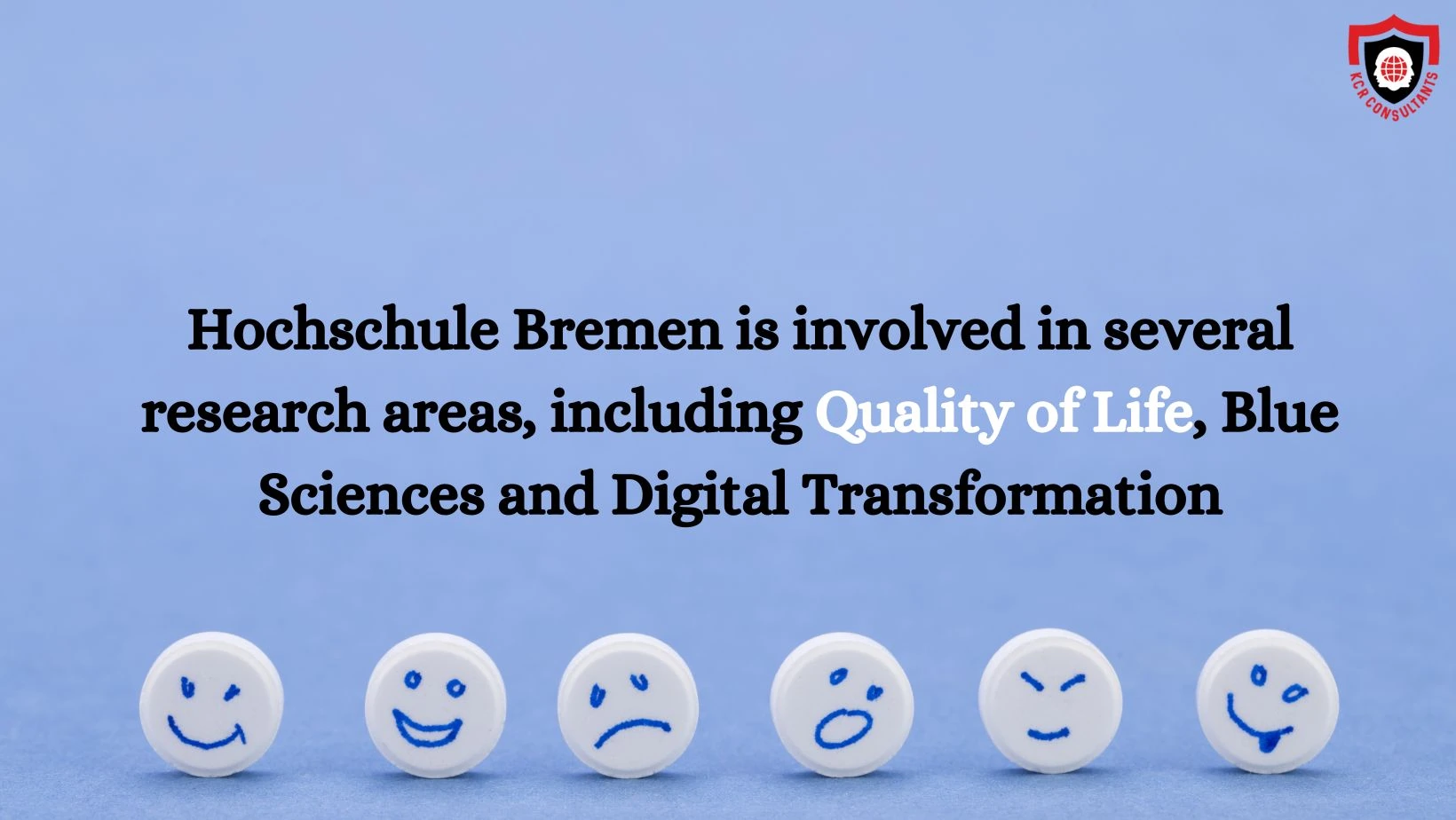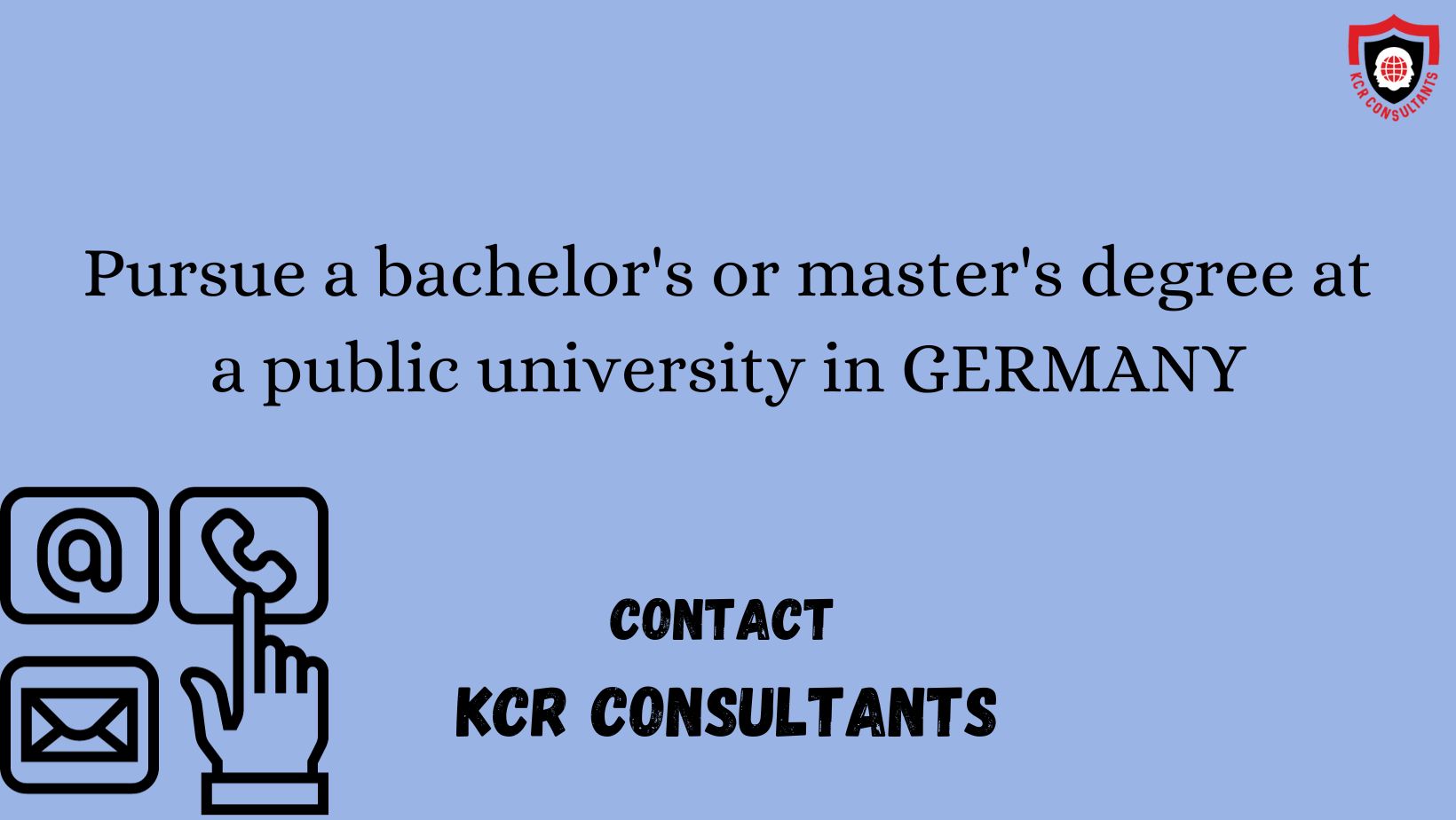The education landscape in Europe is dotted with many distinguished institutions. Still, when the conversation veers toward innovation, applied Research and holistic student development, the Bremen University of Applied Sciences invariably stands tall.
In this article, we are going to explore this university in detail.
Bremen University of Applied Sciences
Bremen University of Applied Sciences, also called HSB (Hochschule Bremen), is the second-largest educational institution in Bremen.
It is renowned for offering a blend of practical and forward-thinking teaching methods in Education.
The university emphasizes both hands-on and future-centric Research approaches in Research. HSB is also recognized for its international connections and collaborations in International Reputation.
The university’s extensive network of over 370 university cooperations worldwide serves as a testament to its commitment to fostering international collaboration and promoting global engagement.
Let us explore the university in detail.
HISTORY
The Hochschule Bremen (HSB) has a rich history that blends tradition with innovation, marking its beginnings in the late 18th century. Its roots trace back to the Bremen Navigation School, established in 1799.
Over the years, the institution evolved, with significant milestones including the inauguration of the Technikum in 1894 and its transformation into the Hochschule Bremen by 1982.
This growth brought an administrative shift from Education to the science and research authority.
HSB merged with other local universities, broadening its academic horizons and facilitating interdisciplinary learning.
Beginning with just 105 engineering students in 1894, by 2020, HSB boasted a diverse student body of approximately 8,700.
Over the years, it also underwent several relocations. Today, HSB is a cornerstone of Bremen’s academic community, recognized for its production of adept graduates and its collaborative endeavors with local businesses, underscoring its vital role in regional advancement.
MISSION STATEMENT
The Mission Statement was adopted by its Academic Senate on 17 April 2018. Here’s a summary of its key points:
Preamble: The institution values academic freedom and independence based on democratic principles and is committed to acting responsibly toward society.
Profile: Over decades, they’ve developed a unique identity as a university of applied sciences. They focus on proactive engagement with social changes and issues, regionally and globally and offer application-focused Education.
Internationality: They are dedicated to establishing themselves as a renowned international institution. They promote international perspectives and intercultural competencies.
Teaching and Learning: Their educational approach is practice-oriented, aiming to equip students for national and international job markets. They emphasize personal growth, social responsibility, lifelong learning and quality assurance.
Research: The University emphasizes applied Research focusing on interdisciplinarity, international collaboration and pressing future challenges. They aim to contribute to regional development and ensure their teachings remain current and practical.
Transfer of Ideas, Knowledge and Technology: They promote the broad dissemination of ideas, knowledge and technology to benefit society, the economy and more. They engage in collaborative projects, training, consultancy and entrepreneurship to drive innovation regionally and tackle global issues.
Gender Equality: The institution prioritizes gender equality in all its operations and is dedicated to ensuring respect and dignity for individuals irrespective of gender, background, religion, age, or any other factor.
Self-conception and Value Orientation: The institution sees itself as a hub of inspiration for its region. They value mutual respect, diversity, inclusivity and core values like sustainability, global openness and reliability. They also align with the UN Convention on the Rights of Persons with Disabilities.
Structures: The organization aims to develop service-oriented structures and processes to cater efficiently and transparently to various stakeholders, from students to staff. They embrace new challenges with a proactive and creative approach.
THE FACULTIES AND THE PROGRAMS OFFERED
Let us explore the Faculties and the programs offered under each faculty in detail.
SCHOOL OF INTERNATIONAL BUSINESS
Bachelor’s Degree Program
- Applied Business Languages and International Management B.A.
- Business Studies / International Management B.A.
- Business Studies B.A.
- European Degree Program in Business and Public Administration B.A.
- European Finance and Accounting B.A.
- Trade and Retail Management B.A.
International Degree Program
- Global Management B.A.
- Tourism Management B.A.
- Business Administration and Engineering B.Eng.
Cooperative Degree Program
- Business Studies B.A.
- Public Administration B.A.
- Trade and Retail Management B.A.
Master’s Degree Program
- Business Management M.A.
- European Studies M.A.
- European / Asian Management MBA
- Global Management MBA
- International Master of Business Administration MBA (dual degree)
- International Tourism Management MBA
- Sustainable Business & Entrepreneurship M.A.
- Master of Business Administration MBA
- Master of Business Administration MBA (Part-time)
Practice-oriented teaching and learning
Studies here are structured using innovative instructional methods that use small group settings. Additional program strengths include a remarkable supervision ratio and a substantial level of engagement with lecturers and professors.
The primary emphasis of academic studies lies in equipping students with the necessary skills to apply their recently gained knowledge in practical settings effectively.
In many academic contexts, including projects, practical phases and final theses, students can apply their acquired knowledge to real-world problems.
Internationality and Intercultural competence
The university possesses an extensive network through establishing cooperation agreements with over 150 partner universities.
Over three decades ago, this faculty emerged as the first in Germany to introduce international degree programs.
The faculty’s degree programs have a stay abroad component as a compulsory or voluntary option.
This faculty’s courses at HSB are held in eight languages.
The professors and their colleagues at partner universities use their international experience and activities in their classes. They teach in global alliances and help students’ research international projects.
SCHOOL OF ARCHITECTURE, CIVIL AND ENVIRONMENTAL ENGINEERING
Bachelor’s Degree Program
- Architecture B.A.
- Civil Engineering B.Sc.
International Degree Program
- Environmental Engineering B.Sc.
Master’s Degree Program
- Architecture / Environmental Design M.A.
- Architecture / Environmental Design M.A. (Part-time)
- Civil and Environmental Engineering (Infrastructure) M.Sc.
- Sustainable Energy and Environment Systems M.Eng.
Research and Transfer of this Faculty
The disciplines of Architecture, Civil Engineering and Environmental Engineering play a significant role in enhancing the research-oriented reputation of Hochschule Bremen. This is achieved by establishing advanced institutions, laboratories and centers that foster multidisciplinary collaboration and facilitate high-quality research endeavors.
The faculty’s research and doctorate projects are effectively integrated into the policy concerns of the Hanseatic City of Bremen and the surrounding federal states through the research cluster “Region im Wandel” (Region in Change).
The faculty’s research facilities are firmly established in contemporary discourses in the fields of architecture, civil engineering and environmental engineering through international research cooperation initiatives and networks.
During the practical semester, students actively engage in Research and development within the faculty through project modules and the completion of their Bachelor’s and Master’s theses.
SCHOOL OF SOCIAL SCIENCES
Bachelor’s Degree Program
- Social Work B.A.
International Bachelor’s Degree Program
- Applied Leisure Science B.A.
- Midwifery B.Sc.
- Nursing (B.Sc.) – Primary Qualification
- Nursing and Health Care Management B.Sc.
- Political Management B.A.
Bachelors Dual Degree Program
- Applied Therapeutic Sciences in Speech and Language Pathology (Logopedics) / Physiotherapy B.Sc.
Cooperative Degree Program
- Social Work B.A.
Master’s Degree Program
- Interdisciplinary Sustainability Management M.Sc.
- Practice Research and Innovation in Social Work M.A.
International Master’s Degree Program
- Palliative Care M.Sc.
- Sustainable Leisure and Tourism Development M.A.
Research
In total, this faculty provides support to seven scientific institutes and maintains strong ties with them.
The academic members of this faculty at Hochschule Bremen actively participate in various research clusters, namely Quality of Life, Blue Sciences, Digital Transformation and Region in Transition.
Here, the Doctoral degrees are conferred through collaborative partnerships with research-oriented universities.
In addition to the exploration of scientific inquiries, the research endeavors prioritize establishing connections with the applied fields of social work, care management, leisure sciences and pertinent political spheres of influence.
Internationality
The faculty’s profile is enriched by proactive collaboration with partner universities, integrating international perspectives into teaching and the facilitation of broad exchanges of lecturers and students at an international level.
Some of the partnered universities are,
- Finland’s Humanities Polytechnic
- Australia’s Southern Cross University
- England’s University of Greenwich
- Malta’s University of Malta
- China’s University of Nottingham Ningbo
- South Africa’s University KwaZulu-Natal
SCHOOL OF ELECTRICAL ENGINEERING AND COMPUTER SCIENCE
Bachelor’s Degree Program
- Automation/Mechatronics B.Eng. (classic, cooperative and international programs)
- Electrical Engineering B.Eng.
- Technical Computer Science B.Sc.
Cooperative Degree Program
The department of Electrical Engineering and Computer Science at HSB provides a well-optimized blend of academic instruction and hands-on industry experience through its cooperative programs, which seamlessly integrate vocational training at a firm with academic studies at HSB.
- Computer Engineering B.Sc.
- Computer Science: Software and Systems Engineering B.Sc. (classic, cooperative and international programs)
- Computer Science B.Sc. (Cooperative International Women’s Degree Program)
- Media Computer Science B.Sc.
- Automation/Mechatronics B.Eng. (classic, cooperative and international programs)
International Degree Program
- Computer Science B.Sc. (International Women’s Degree Program)
- Media Computer Science B.Sc. (also available as a cooperative degree program)
- Computer Engineering B.Sc.
- Engineering and Applied Physics B.Sc.
Master’s Degree Program
- Electronics Engineering M.Sc.
- Computer Science M.Sc.
International Double Degree Master Degree Program
- Engineering and Management of Space Systems
Research and Transfer
The professors and instructors of this institution engage in a range of research and development activities, which complement the diversity of degree programs offered.
The students also have the chance to undertake contract research work in several well-equipped laboratories available within the faculty.
Collaboration with corporate entities and other academic institutions, projects funded by national or European grants, or contractual engagements all contribute to mutual knowledge exchange between partners and the faculty.
Additionally, students gain valuable exposure to the latest advancements in electrical engineering and computer science through their involvement in research and development projects, as well as through their participation in topics for final theses.
Some of the research institutions of this faculty include,
- Institute for Digital Participation
- Institute for Computer Science and Automation (IIA)
- Institute of Microelectronics, Micromechanics and Microoptics (I3M)
- Institute of Communications Engineering (INT)
- Institute for Water Sound, Sonar Technology and Signal Theory (IWSS)
- Research Group for Nanobiomaterials
SCHOOL OF NATURE AND ENGINEERING
Bachelor’s Degree Program
- Energy Engineering B.Eng.
- Aerospace Engineering B.Eng.
- Aviation Systems Engineering and Management B.Eng.
- Mechanical Engineering B.Eng.
- Mechanical Engineering with Focus on Digitalisation B.Eng.
- Naval Architecture and Ocean Engineering B.Eng.
- Energy Engineering and Management B.Eng.
Cooperative Degree Program
- Mechanical and Production Engineering B.Eng.
- Naval Architecture and Ocean Engineering B.Eng.
International Bachelor’s Degree Program
- Biomimetics B.Sc.
- Mechanical Engineering with a focus on the economic area of China B.Eng.
- Shipping and Chartering B.A.
Master’s Degree Program
- Aerospace Technologies M.Sc.
- Biomimetics: Mobile Systems M.Sc.
- Mechanical Engineering M.Eng.
- Naval Architecture and Ocean Engineering M.Eng
International Master’s Degree Program
- Industrial and Environmental Biology B.Sc.
Research Facility
The Hochschule Bremen distinctively integrates the necessary core competencies for implementing the European Union strategy in the fields of shipbuilding, nautical science, maritime transport and biology within the Faculty of Nature and Technology.
The university introduced many Research programs that benefit the whole state. Let us explore one of its Research programs, “Blue Growth.”
Blue Growth at HSB
Hochschule Bremen has a strong historical connection to maritime Education, dating back to the founding of the Bremen Navigation School in 1799.
Additionally, in 1895, the institution expanded its maritime Education by introducing teaching in ship engineering and shipbuilding.
The university is currently involved in a wide range of maritime activities, both in terms of teaching and Research.
It introduces the concept of the E.U.’s “Blue Growth” strategy, a long-term political strategy aimed at promoting sustainable growth within various marine and maritime sectors of the economy.
As a coastal state with a marine culture, Bremen can significantly benefit from the E.U.’s plans to promote sustainable growth that considers climate, oceanography and economic, cultural and social factors in the area.
CONTINUING EDUCATION
The university also provides Continuing Education.
In today’s ever-evolving employment landscape, the quest for knowledge remains paramount. Not only does continuing Education elevate students’ standing in the job market, but it’s also a catalyst for personal growth and broadening intellectual boundaries.
Pursuing continuing Education is crucial for achieving success in the employment market, but it also plays an important role in fostering personal growth and expanding one’s horizons.
The university supports students through the Graduate & Professional School and its International Graduate Center, providing various part-time continuing courses and full-time international Master’s Education.
This support is backed by the university’s extensive teaching expertise accumulated over several years.
Moreover, the Center for Teaching and Learning (ZLL) offers students and educators appropriate possibilities for ongoing Education and training in conjunction with their academic pursuits and instructional responsibilities.
International MBA and Master’s programs (taught in English)
- A. European Studies
- MBA International Master of Business Administration (dual degree)
- MBA International Tourism Management
- MBA European/Asian Management
- MBA Global Management
- Eng. Aeronautical Management
RESEARCH INITIATIVES
HSB has built an enviable reputation on the pillars of Research and innovation. As an institution that prides itself on its applied sciences curriculum, HSB promotes a symbiotic relationship between theoretical knowledge and real-world application.
Numerous research clusters within the Bremen University of Applied Sciences address the emerging challenges from sustainable technology solutions to societal dynamics in a rapidly globalizing world.
Some of the Research Clusters are,
- Blue Sciences
- Digital Transformation
- Dynamics, Tension and Xtreme Events
- Quality of Life
- Aerospace
- Region in transition
CAMPUS FACILITY
A walk through the HSB campus reveals a vibrant tapestry of cultures, ideas and activities. Beyond rigorous academic pursuits, Bremen University of Applied Sciences students immerse themselves in diverse extracurricular engagements.
Cultural festivals, sports tournaments, workshops and seminars – there’s always a buzz of activity.
Moreover, establishing student-led societies and clubs fosters leadership and team collaboration skills.
The diverse student body, representing numerous countries, ensures a rich cultural exchange, offering students a global perspective right within the campus.
IN SUMMARIZE
In summary, the Bremen University of Applied Sciences (HSB) represents academic and Research excellence in the European education landscape. With its pioneering research initiatives, dynamic campus environment and extensive global outreach.
The university offers a comprehensive educational experience and nurtures future leaders equipped to navigate the complexities of the modern world.
As an institution that seamlessly melds tradition with innovation, HSB is a testament to what holistic higher Education can achieve, making it an indispensable choice for aspiring scholars globally.
Related Article: STUDY IN GERMANY, FREE EDUCATION IN GERMANY










